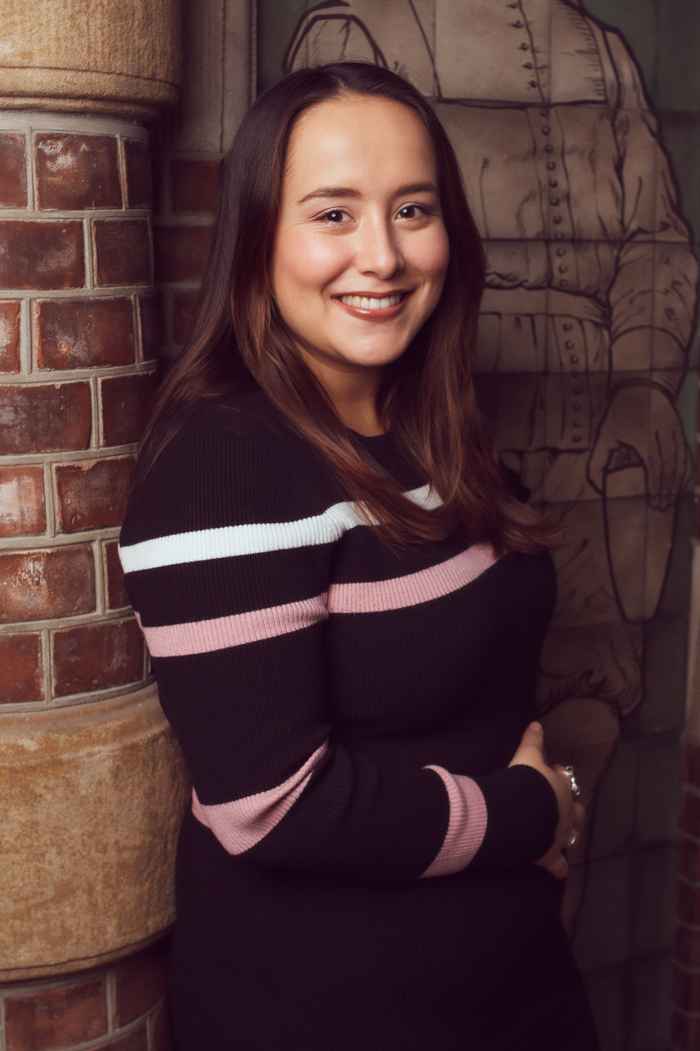Daniela Ospina Alonso: 'Don't be afraid to say no'

What was your dream job as a child, and what is your dream job now?
I knew from an early age that I wanted to help people, so I wanted to become a doctor. I even buried my head in books on human biology during recess in primary school. However, I quickly ruled out this future when it became clear that I cannot stand the sight of blood without getting sick. Twenty years later, my dream job is still related to people, but now it’s focused on how to improve their economic and social standards of life. I am passionate about international economics, social development and journalism. So if I had to choose, I would pick to be Christiane Amanpour for a day.
What is your current position, and what do you do?
Currently, I work as an Analyst at ING, in the Debt Capital Markets team for Investment Grade companies. What that means is I basically work in the bond market, helping companies issue debt notes in Euros, American dollars and Pounds. I work in the Amsterdam office, focusing on clients whose ‘credit worthiness’ allows them to be deemed Investment Grade: safe borrowers.
We work with companies such as Heineken, BMW and Nestlé. I help create pitch books that are presented to clients, as we strive to be the first bank they call when they wish to issue a bond. I'm also involved during the launching of deals – it's very exciting!
How did you get your job?
While I was finishing my Master’s thesis, I decided to search the internet for vacancies. I came across a six-month internship at ING Debt Capital Markets – the team I am working in now. With little confidence in actually getting the job, I applied and was very surprised when a couple of weeks later they called me. Several interviews later, I landed the position.
After six very challenging but rewarding months I was ready to move to my next challenge. I officially joined ING as a Wholesale Banking Trainee in April of 2018. There were eight trainees in total, of which I was the only non-Dutch. I had the opportunity to rotate between different teams within the bank and see some of the different products ING offers to its clients. It has been an incredible experience, and it exceeded any expectations I had before. After a short-term assignment in the New York office, I joined a DCM team as my fixed position.
What do you like most about your job?
I feel fortunate with my job, as it allows me to have day-to-day exposure to the international arena. It also lets me understand current and future economic events – as well as to write about them; I am in the market and I get to see and experience their fluctuations. I learn about different sectors of the economy and how companies decide to finance themselves. All in all, it is very insightful!
What was it like to enter the Dutch labour market after first coming here as an international student?
It was difficult and exhausting at times, but once you learn how the Dutch labour market works it can be extremely rewarding. There are fewer opportunities for us internationals, especially if you do not speak Dutch (like me back then), but it is possible. I had to work harder than Dutch colleagues sometimes, to show my employers that I was good at my job. So, it is not an easy step to take, but once you earn respect and your place, you start to feel at home. Most importantly: you belong.
What are the most challenging aspects of your job?
The most challenging aspect of my work is learning how to deal with the different personalities within the same work environment: we all have different ideas and ways of working. It is important to understand that not everything is done your way.
How do you apply the knowledge and skills you gained during your studies in your job?
The skills related to international economics, trade and finance have proven to be the most useful at my everyday job. Also, learning how to write a text was very important, as I have to do it frequently now.
What career advice would you give students and fellow alumni?
I would give them two pieces of advice. First, you never know where you end up in your work life. That can be exciting, even if it is outside of your comfort zone. Do not think that you are incapable of doing something, just because you have not done it before; we are all capable of learning new things. Second, do not be afraid to say no. Say no when you disagree with someone or when something does not feel right to you. Your colleagues will actually appreciate your honesty, as long as you do it in a respectful way.
We thank Daniela for starring in our interview series, and for the care she took in answering our questions.
Questions?
If you have any questions for Daniela, you can send her an email.
We hope this month’s alumna was an inspiration. What kind of Economics and Business career would you like to know more about? Let us know, and we will try to arrange an interview with alumni who have experience in that field for a future instalment of Alumni in the Spotlight!